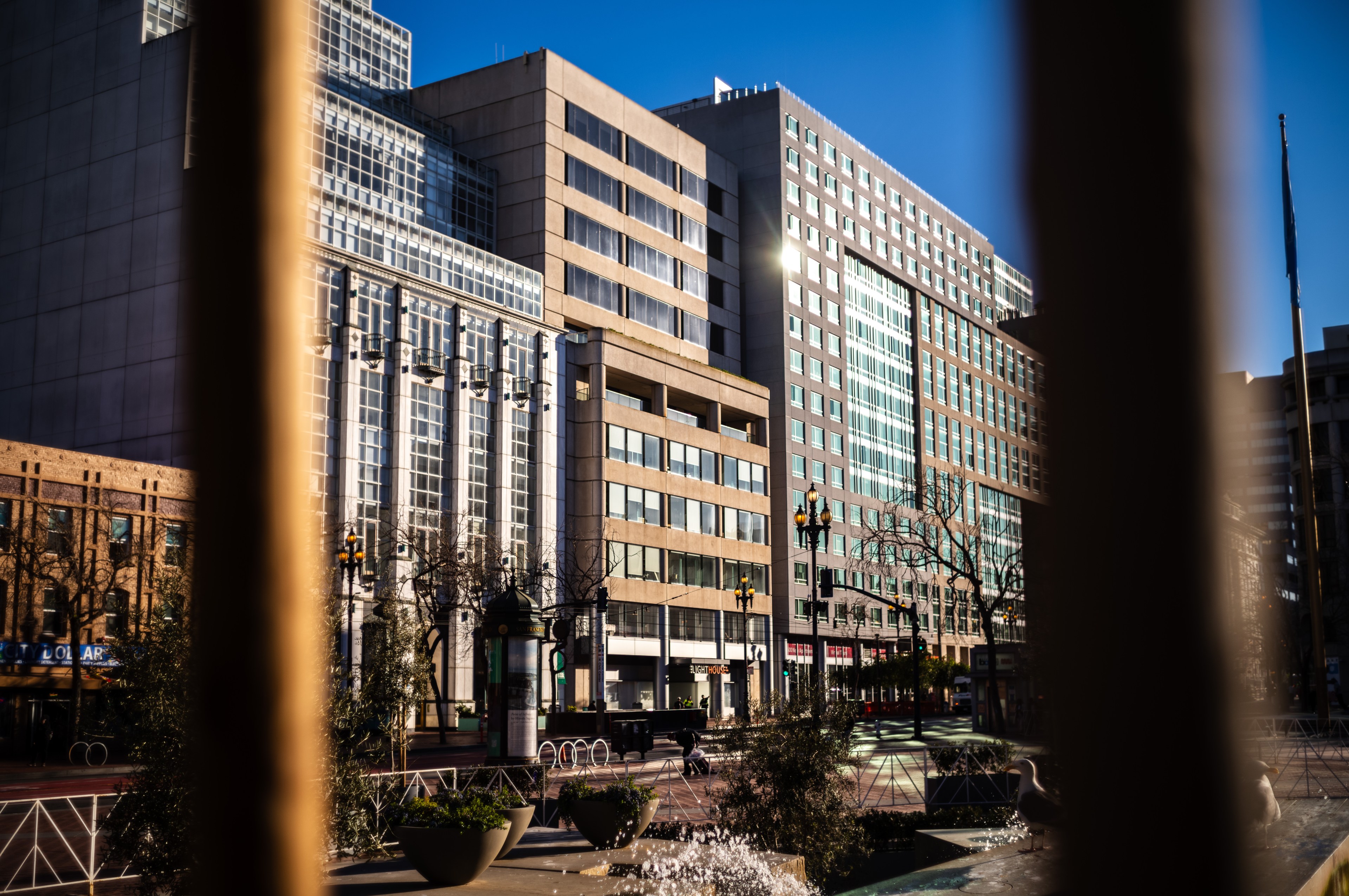City officials have pitched students, soccer stadiums and safe streets as possible solutions to a vacancy crisis sweeping downtown San Francisco.
But in the case of 1155 Market St.—which sits directly across from U.N. Plaza and near City Hall—the city itself is causing woes by planning to pull out of its lease in the building.
The 11-story building, owned by the nonprofit LightHouse for the Blind and Visually Impaired, was initially leased to the City and County of San Francisco in 1999 as an office space for the San Francisco Public Utilities Commission.
Over the years, it has served as a space for a number of city departments including currently the Office of the Treasurer & Tax Collector, the Mayor’s Office of Disability and the Department of the Environment.
Citing high rents against a rapidly declining real estate market, the Board of Supervisors rejected the option to approve a five-year lease renewal at the property last year.
Now the building, which also serves as the headquarters for LightHouse for the Blind, has been put into special servicing—a process to determine whether a property holder can pay its debt—because of concerns of a default on a $48 million mortgage scheduled to come due January 2025, according to real estate data company Trepp.
“Losing the City as a tenant would create a great financial hardship for the Lighthouse for the Blind,” LightHouse CEO Sharon Giovinazzo said in an email to The Standard.
Jeff Cretan, a spokesman for the mayor, said the city remains committed to keeping its footprint in downtown or the Market Street area. He positioned the lease rejection as part of a strategy to consolidate office space in fewer buildings and take advantage of the current downturn in the real estate market.
“We are being responsible with tax payer funds and looking for the best opportunities to continue to have a strong presence our Downtown and Market Street area,” Cretan said. “The isn’t about quitting downtown — it’s about finding a new building.”
To work out a deal, the nonprofit said it has made several proposals to renew the lease at lower costs. The city has not responded to the latest proposal from LightHouse, which included an additional discount on rental costs, including two years of free rent, according to Giovinazzo.
The city is still occupying the space at a holdover rent. Although it has not officially notified LightHouse that it intends to leave, signs are pointing in that direction.
Giovinazzo said the city is likely to “abandon the building that literally sits in the shadows of City Hall.”
Initially, the city signed a five-year renewal to extend its tenancy in the property until Jan. 31, 2028. Annual rent for the roughly 103,000 square feet of office space would be around $6.68 million with a 3% increase each year for a total of $35.5 million in rent over five years.
However, as city staffers noted in their analysis last year, the proposed costs were higher than appraised fair market rents, which have only continued a downward slide. LightHouse for the Blind purchased the building for $70.2 million in 2015, according to property records.
“I think it’s important for the City and County of San Francisco as a very active market participant to send a message that we can talk with our feet,” Supervisor Aaron Peskin said in a committee meeting last year. “I think we should just buckle up, reject it and be ready to put up the dollars to move somewhere else.”
Adding to the challenge for the property owner is the hurdle of leasing a large section of space to tenants in the Mid-Market neighborhood because of the well-publicized challenges around street conditions and drug use in the area.
The neighborhood is seeing nearly 40% of its office space available for lease or sublease, according to data from real estate firm Avison Young.
